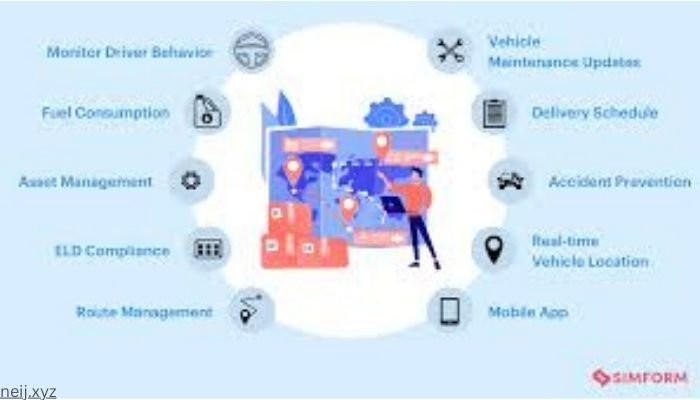In today’s fast-paced business environment, managing a fleet of vehicles efficiently can be a daunting task. Whether it’s delivery trucks, company cars, or service vehicles, ensuring smooth operations demands meticulous planning and execution. Enter fleet management software, a cutting-edge solution designed to streamline processes, improve efficiency, and reduce operational costs.
This article delves into the world of fleet management software, exploring its features, benefits, and the transformative impact it has on businesses.
What is Fleet Management Software?
Fleet management software is a digital tool that enables businesses to monitor, manage, and optimize their fleet operations. From tracking vehicle locations in real-time to scheduling maintenance and analyzing fuel consumption, this software provides a comprehensive suite of tools to manage every aspect of fleet operations.
It is particularly useful for industries such as logistics, transportation, and delivery services, where timely execution and cost-efficiency are critical to success.
Key Features of Fleet Management Software
Modern fleet management software comes equipped with an array of features designed to cater to diverse business needs:
1. Real-Time Tracking and Monitoring
GPS-enabled tracking allows businesses to monitor their vehicles in real-time. This feature enhances operational visibility and enables quicker decision-making during emergencies or route adjustments.
2. Maintenance Scheduling
Timely vehicle maintenance reduces downtime and prevents costly repairs. Fleet management software automates maintenance schedules, ensuring vehicles are always road-ready.
3. Fuel Management
Fuel is one of the largest expenses in fleet operations. By analyzing fuel consumption patterns, businesses can identify inefficiencies and take corrective actions to save costs.
4. Driver Performance Monitoring
The software provides insights into driver behavior, such as speeding, idling, or harsh braking. Monitoring these metrics helps improve safety and reduces wear and tear on vehicles.
5. Data and Reporting
Comprehensive reports on vehicle usage, costs, and performance enable businesses to make data-driven decisions. Advanced analytics provide actionable insights to optimize operations further.
Benefits of Implementing Fleet Management Software
Investing in fleet management software brings numerous advantages that directly impact a company’s bottom line and operational efficiency.
1. Cost Savings
By optimizing routes, reducing fuel consumption, and minimizing maintenance costs, businesses can achieve significant savings.
2. Enhanced Productivity
With automated processes and real-time updates, fleet managers can focus on strategic planning rather than day-to-day operational tasks.
3. Improved Safety
Monitoring driver behavior and vehicle health ensures safer operations, reducing the risk of accidents and liabilities.
4. Environmental Impact
Efficient fuel management and route optimization contribute to lower carbon emissions, making fleet operations more environmentally friendly.
5. Compliance and Record Keeping
Many fleet management solutions assist in maintaining compliance with regulations by keeping accurate records of vehicle inspections, licenses, and driver certifications.
Choosing the Right Fleet Management Software
Not all fleet management software solutions are created equal. Businesses must consider their unique requirements before selecting a tool.
1. Scalability
Ensure the software can grow with your business. Scalable solutions accommodate an increasing number of vehicles without compromising efficiency.
2. User-Friendly Interface
The software should be intuitive and easy for your team to use. A complicated system may lead to underutilization.
3. Integration Capabilities
Look for software that can integrate with your existing tools, such as accounting systems or CRM platforms, for seamless operations.
4. Customer Support
Reliable customer support is essential to address any issues or questions that arise during implementation and daily use.
5. Cost-Effectiveness
Choose a solution that offers a good balance of features and affordability. High upfront costs might be justified if the long-term benefits outweigh the investment.
Real-World Applications of Fleet Management Software
Companies across various industries are leveraging fleet management software to gain a competitive edge:
- Logistics Firms: Ensuring timely deliveries and optimizing routes for cost savings.
- Public Transportation: Monitoring buses and trains for efficient scheduling and maintenance.
- Delivery Services: Enhancing customer satisfaction by providing accurate delivery timelines and real-time tracking.
